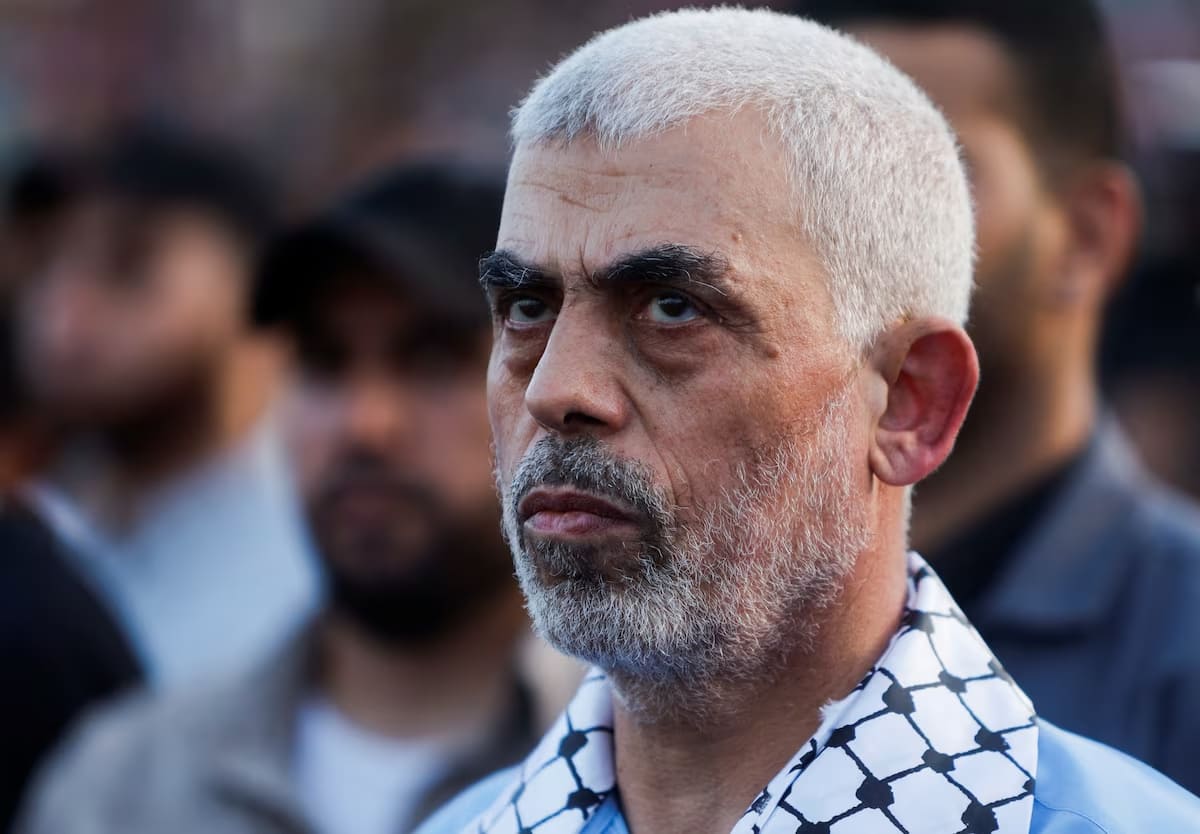Yahya Sinwar becomes new head of Hamas politburo
Yahya Sinwar, the leader of Hamas in the Gaza Strip, has been elected as the new head of the political bureau of the Palestinian group, Hamas, as reported by Reuters. The election comes following the death of the former leader, Ismail Haniyeh, in late July.

In a statement released by Hamas, it was announced,
"The Islamic Resistance Movement Hamas announces that Yahya Sinwar has been elected head of the political wing of the movement."
Sinwar, who has been an important figure within Hamas, will now take over the political leadership following Haniyeh's death in Tehran, which Hamas attributes to an Israeli strike. The Israeli government has not officially claimed responsibility for Haniyeh’s death.
Sinwar, noted as the most influential Hamas leader still alive after Haniyeh's death, remains in hiding in Gaza. Israeli authorities consider Sinwar to be one of the key architects behind the October 7 Hamas attack on Israeli territory, which resulted in the deaths of approximately 1,200 people and the kidnapping of over 200.
Israel Defense Forces (IDF) spokesman Daniel Hagari stated that Israel would continue to target Sinwar, saying,
"There is only one place for Yahya Sinwar, and that is next to Mohammed Deif and the rest of the October 7 terrorists."
Deif, the head of Hamas's military wing, was reportedly killed in an Israeli airstrike in mid-July.
Background on Yahya Sinwar
Yahya Sinwar was born in 1962 in the Khan Yunis refugee camp in the southern Gaza Strip. His parents were originally from Ashkelon but became refugees following the Nakba, the Palestinian term for the mass displacement during the 1948 Arab-Israeli War. Sinwar is recognized as one of the founders of Hamas's military units and its security apparatus.
In 1988, Sinwar was arrested by Israeli forces and sentenced to life in prison for the murder of four Palestinians accused of collaborating with Israel. He spent over 22 years in Israeli custody, where he learned Hebrew and became familiar with Israeli culture. Sinwar was released in 2011 as part of a prisoner exchange deal that saw over 1,000 Palestinians freed in return for the release of Israeli soldier Gilad Shalit.
In 2013, Sinwar was elected to the Hamas Politburo in Gaza and ascended to its leadership in 2017. Known for his hardline stance towards Israel, Sinwar's leadership is expected to maintain a militant approach, with little inclination towards seeking a ceasefire or negotiating the release of around 115 Israeli hostages held by Hamas.
Sinwar maintains strong ties with Iran, a major supporter of Hamas. Tehran provides funding, training, and arms to Hamas, significantly boosting its military capabilities, including the stockpiling of thousands of rockets aimed at Israeli cities.
According to Israeli and American intelligence, Sinwar's strategy involves prolonging the conflict in Gaza to damage Israel's international standing and strain its relationship with its key ally, the United States. This hardline approach suggests that under Sinwar’s leadership, Hamas will continue its resistance against Israel without seeking diplomatic resolutions.
Comments (0)